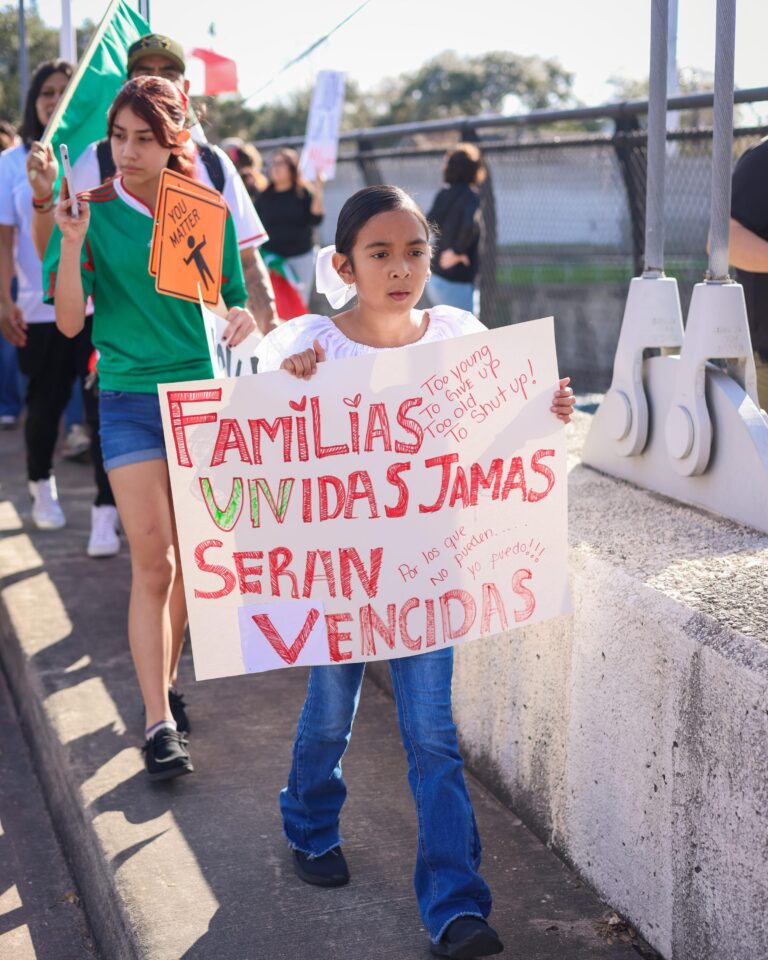Massive Demonstrations in Houston and San Antonio Challenge Recent Immigration Enforcement Tactics
This week, thousands gathered in Houston and San Antonio to protest intensified immigration enforcement targeting workplaces and courthouses. These demonstrations reflect growing unease within immigrant communities, who report heightened anxiety and instability due to recent federal crackdowns. Organizers and participants alike are demanding stronger legal safeguards and policy reforms, emphasizing the profound effects these enforcement actions have on families and local economies. This surge of activism highlights the escalating friction surrounding immigration policies in Texas.
Community Mobilization Against Workplace and Courthouse Immigration Raids
In reaction to a series of federal immigration operations focusing on employment sites and judicial centers, residents of Houston and San Antonio rallied in large numbers to express their dissent. Protesters underscored the fear and upheaval these raids inflict on immigrant workers and their loved ones. Advocates stressed the necessity of unity and called for an immediate halt to aggressive enforcement tactics that fracture families and destabilize local economic systems.
Key demands voiced during the protests included:
- Immediate suspension of immigration raids at workplaces and courthouses
- Enhanced legal protections for immigrant populations
- Accountability measures for agencies conducting mass detentions
- Expanded support services for affected families and workers
| City | Approximate Attendance | Main Concern |
|---|---|---|
| Houston | 350+ | Workplace immigration raids |
| San Antonio | 400+ | Courthouse enforcement actions |
Calls for Policy Overhaul Amid Intensified Immigration Enforcement
Leaders from various community organizations have united to challenge the recent surge in immigration enforcement targeting workplaces and courthouses throughout Texas. The protests in Houston and San Antonio brought attention to the disproportionate impact these policies have on immigrant families, the disruption to local economies, and the erosion of trust in public institutions. Speakers shared personal narratives of fear and displacement, urging policymakers to shift focus from punitive measures toward integration and support.
Among the principal reform requests are:
- Ending workplace raids that cause family separations and economic instability
- Reforming courthouse procedures to guarantee equitable treatment regardless of immigration status
- Developing community-based support initiatives as alternatives to harsh enforcement
- Increasing transparency and accountability in immigration enforcement operations
Advocates argue that restoring community trust requires ongoing dialogue and policy adjustments that prioritize human dignity and social welfare over strict enforcement.
Effects on Families and Local Economies Drive Demand for Holistic Immigration Reform
Immigrant families in Texas, especially in Houston and San Antonio, are bearing the brunt of escalated immigration enforcement. With raids extending beyond workplaces to courthouses and public venues, many households face heightened uncertainty, financial hardship, and the constant threat of separation. Community advocates highlight that these aggressive tactics disrupt children’s schooling, fracture family units, and diminish trust in vital public services, fostering a pervasive atmosphere of fear that affects entire neighborhoods.
The economic fallout is equally troubling. Small businesses, heavily dependent on immigrant labor, report significant staffing shortages and operational difficulties following enforcement actions. Economic experts point to several critical consequences:
- Reduced labor availability: Shrinking workforce pools impede productivity and growth.
- Lower consumer spending: Financial stress leads families to cut back on local expenditures.
- Increased demand on social services: Greater need for legal assistance and community support resources.
These challenges underscore the urgent need for comprehensive immigration reforms that balance enforcement with protections for families and economic resilience.
Advocates Press for Human Rights-Centered Immigration Enforcement Policies
Human rights defenders and community leaders convened in Houston and San Antonio to deliver a clear message to lawmakers: immigration enforcement must respect individual rights and human dignity. Protesters condemned the harsh tactics used in workplace and courthouse raids, emphasizing the unfair treatment and family separations these operations often cause. Many expressed concern over enforcement methods, advocating for policies that emphasize transparency, accountability, and protection for vulnerable groups.
Key proposals from advocates include:
- Prohibiting indiscriminate workplace raids that displace families and instill fear among both documented and undocumented residents
- Ensuring due process rights by guaranteeing access to legal counsel before detention or deportation proceedings
- Establishing independent oversight bodies to monitor and prevent abuses in immigration enforcement
| Issue | Advocate Recommendation | Anticipated Result |
|---|---|---|
| Workplace Raids | Ban broad immigration workplace raids | Reduce fear and preserve family unity |
| Courthouse Enforcement | Guarantee legal representation prior to detentions | Ensure fairness and justice |
| Enforcement Transparency | Create independent oversight committees | Enhance accountability and prevent misconduct |
Looking Ahead: Navigating the Future of Immigration Enforcement in Texas
As protests persist in Houston and San Antonio, demonstrators remain resolute in their calls for equitable treatment and sweeping immigration reform. These events spotlight the ongoing conflicts surrounding enforcement policies and their profound effects on immigrant communities throughout Texas. Officials have yet to issue formal responses to the demonstrations. Observers anticipate that the evolving situation will continue to attract attention as immigration enforcement debates unfold at both state and federal levels.




